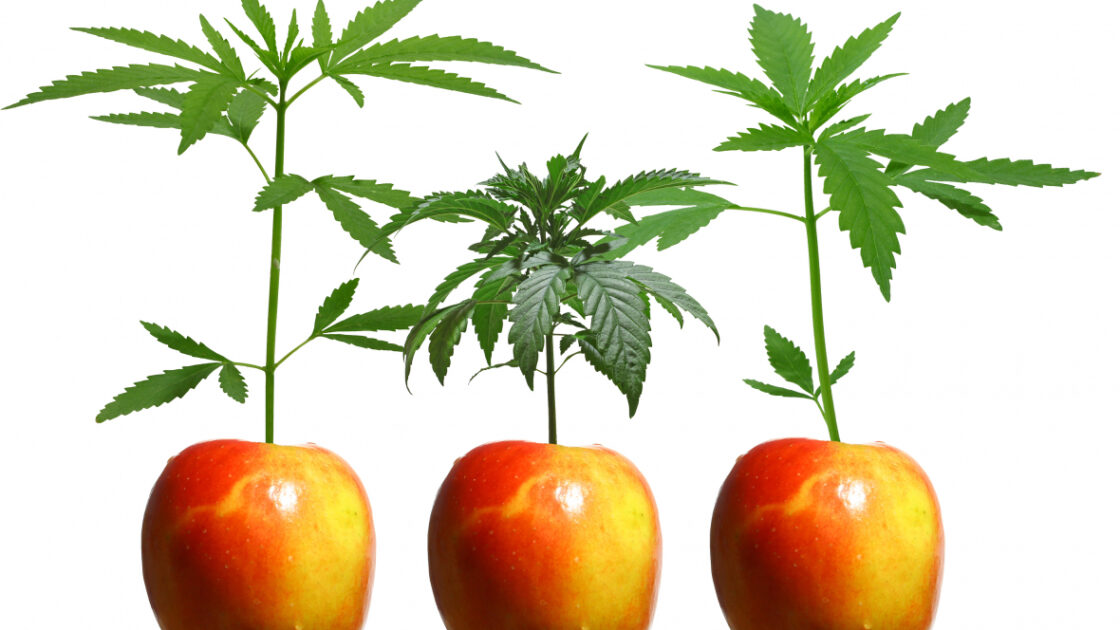Munchie Marijuana Effects: It’s All In Your Head (Literally)

Anyone who’s been to college has heard nothing less than a laundry list of alleged marijuana effects. “It helps you sleep.” “It enhances sex.” “It revs up your metabolism.” No wonder it’s so often looked-upon as a miracle drug.
Out of all the speculated marijuana effects, there is one that everyone knows to be real: The munchies. But what exactly causes the post-puff-puff-pass snacking? Neurobiology experts may have found out.
Apparently, our grey matter is the culprit, according to a new study published in Nature. A team of researchers at Yale administered a chemical solution formulated to mimic marijuana effects to mice, and studied its impact on POMCs, the neurons that are responsible for suppressing appetite. As most would assume, the scientists predicted that these chemicals would diminish POMC function, leading to the well-known marijuana effect of hunger.
Instead, the results were so unexpected that the researchers first thought that data had been incorrectly recorded. After being injected with the marijuana-like chemicals, the POMCs in mice became even more active.
To confirm these findings, the scientists conducting the study were able to simulate decreased POMC function within the mice, after which the subjects once again received the same chemical injection. This time, the mice didn’t eat as much. Conversely, when POMC function was synthetically boosted, the mice consumed greater quantities of food.
If you had to re-read those puzzling results more than once, you’re not alone. After first reading a Los Angeles Times article summarizing the study, my thoughts were, “Wait a minute. Our hunger-suppressing neurons become more active under the influence of marijuana? What gives, man?”
The answer lies within yet another chemical called MSH. That’s what our friendly POMC neurons release when they’re busy suppressing our appetites. When the mice used in the study were completely free of any drug-like substances, researchers noted that MSH production was normal. However, under the influence of the marijuana-like chemicals, their POMCs weren’t releasing MSH, but instead, were producing beta-endorphin, an opiate that promotes appetite.
It’s a sad day for those pot enthusiasts who have long maintained that hunger results from marijuana use due to its ability to jump-start one’s metabolism. While the jury is still out on weed’s metabolic effects (it’s been speculated in publications ranging from Slate to Men’s Journal), it would appear that plain old neuroscience is behind the munchies.
The news isn’t entirely bad, and still prompts the question of marijuana’s health benefits. In fact, the study may prove encouraging to advocates for the drug’s use among cancer patients in need of greater sustenance, or those battling other illnesses that cause a drastic reduction in appetite. If nothing else, the study shows just how complex of a system comprises our minds and bodies, and how much is yet to be discovered about the effects of what we put into it.
Related on Organic Authority
Medical Marijuana ‘Drug’ May Aid in Weight Loss (But What About the Munchies?)
Toke Your Taste Buds: Recreational Marijuana Food Pairings at Colorado Restaurant
There’s Medical Marijuana Infused Pizza Delivery in Los Angeles Now
Image: Shutterstock/Barry Blackburn

